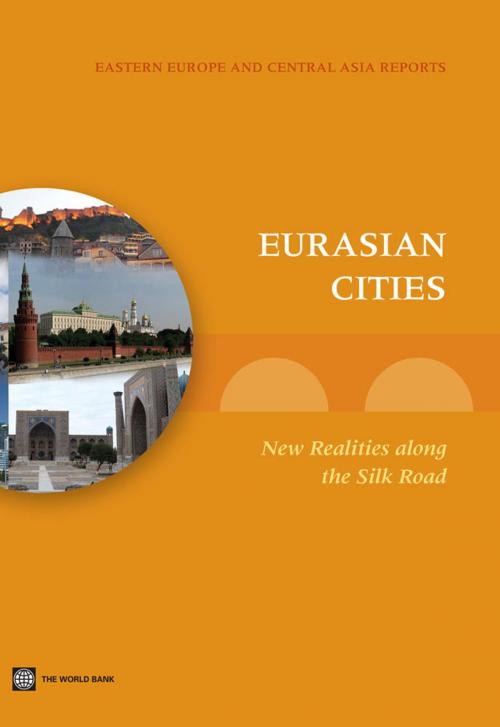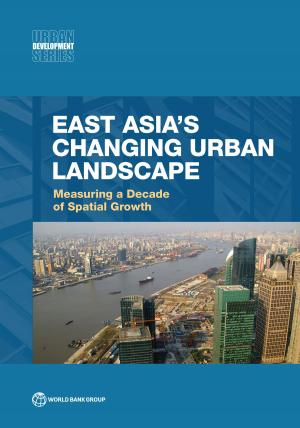Eurasian Cities: New Realities along the Silk Road
Nonfiction, Social & Cultural Studies, Political Science, Politics, City Planning & Urban Development, Business & Finance, Economics, Sustainable Development, Economic Development| Author: | Souleymane Coulibaly, Uwe Deichmann, William R. Dillinger, Marcel Ionescu-Heroiu, Ioannis N. Kessides, Charles Kunaka, Daniel Saslavsky | ISBN: | 9780821395820 |
| Publisher: | World Bank Publications | Publication: | September 7, 2012 |
| Imprint: | Language: | English |
| Author: | Souleymane Coulibaly, Uwe Deichmann, William R. Dillinger, Marcel Ionescu-Heroiu, Ioannis N. Kessides, Charles Kunaka, Daniel Saslavsky |
| ISBN: | 9780821395820 |
| Publisher: | World Bank Publications |
| Publication: | September 7, 2012 |
| Imprint: | |
| Language: | English |
Faced with changing economic circumstances and a reorientation of trade toward Europe and Asia, will Eurasia’s cities be able to adjust? Will some cities be granted the flexible regulations and supportive policies necessary for growth? And will some others be allowed to dwindle with policies put in place to assist their people in finding prosperity elsewhere in the region? Eurasian Cities: New Realities along the Silk Road responds to pressing questions for policy makers in Eurasian cities and national governments in the region. Building on the insights of the World Development Report 2009: Reshaping Economic Geography, it provides an economic and policy framework to unleash the growth potential of these cities through a process of rethinking, planning, connecting, greening, and financing these changes in the right way. While Eurasian cities diverge in some respects, they also face similar challenges. Policy makers have a key role to play in assisting spatial restructuring, particularly in addressing imperfect information and coordination failures. Eurasian cities will also have to find the right balance between markets and institutions to become sustainable. For Eurasia to grow sustainably, securing accessibility to leading regional markets such as China, the European Union, India, and the Russian Federation is critical. This process will require key institutions to be developed to unite the countries, key connective infrastructures to be established between domestic and regional markets, and targeted interventions to be undertaken to compensate countries for short-term losses from this deepened economic cooperation. This book will be of interest to policy makers, economists, and government officials interested in growing Eurasian cities.
Faced with changing economic circumstances and a reorientation of trade toward Europe and Asia, will Eurasia’s cities be able to adjust? Will some cities be granted the flexible regulations and supportive policies necessary for growth? And will some others be allowed to dwindle with policies put in place to assist their people in finding prosperity elsewhere in the region? Eurasian Cities: New Realities along the Silk Road responds to pressing questions for policy makers in Eurasian cities and national governments in the region. Building on the insights of the World Development Report 2009: Reshaping Economic Geography, it provides an economic and policy framework to unleash the growth potential of these cities through a process of rethinking, planning, connecting, greening, and financing these changes in the right way. While Eurasian cities diverge in some respects, they also face similar challenges. Policy makers have a key role to play in assisting spatial restructuring, particularly in addressing imperfect information and coordination failures. Eurasian cities will also have to find the right balance between markets and institutions to become sustainable. For Eurasia to grow sustainably, securing accessibility to leading regional markets such as China, the European Union, India, and the Russian Federation is critical. This process will require key institutions to be developed to unite the countries, key connective infrastructures to be established between domestic and regional markets, and targeted interventions to be undertaken to compensate countries for short-term losses from this deepened economic cooperation. This book will be of interest to policy makers, economists, and government officials interested in growing Eurasian cities.















